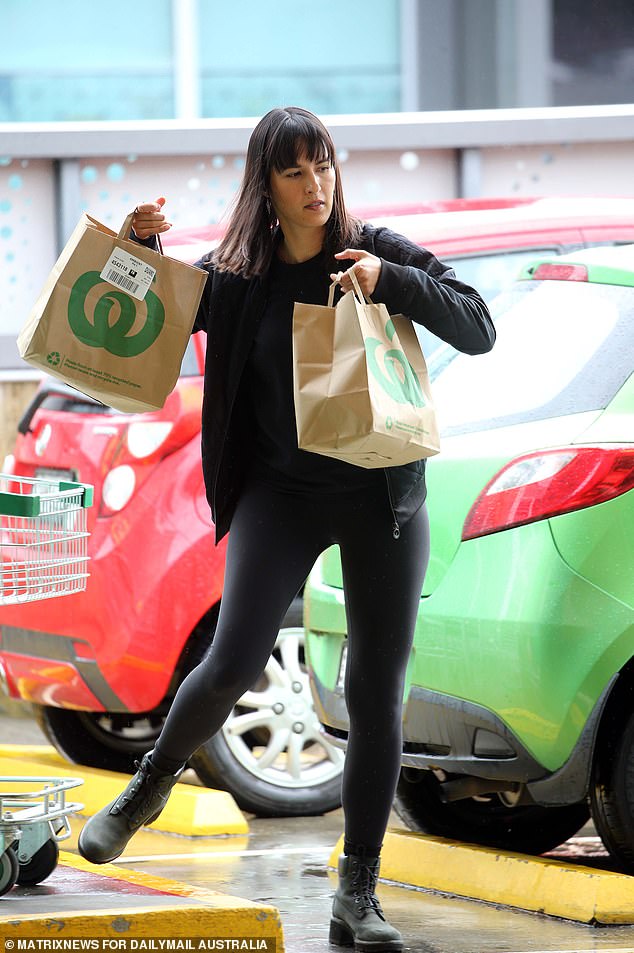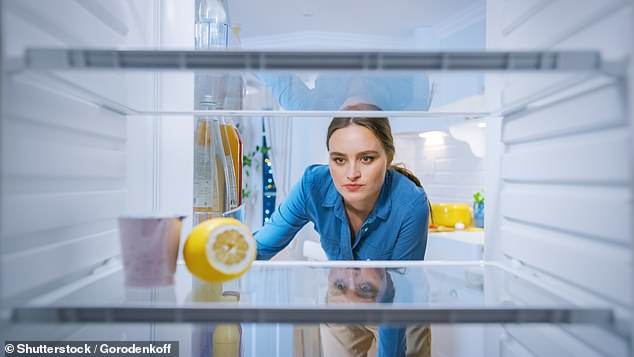Why buying frozen peas is a sign you are struggling financially
Australia’s cost of living crisis is now so severe that low-income earners are spending a quarter of their wages on groceries – and even skipping meals to survive.
A new report from the Australian Competition and Consumer Commission also shows that those who buy frozen peas are in financial trouble.
“Households have also told the ACCC that to reduce their grocery bills, they are spending more time shopping for savings, replacing fresh food with frozen items and cutting back on non-essential items,” the report said on Thursday.
But those weren’t the only sacrifices revealed during a 15-minute online session questionnaire of 13,000 people so far, which runs until April 2.
A new report from the Australian Competition and Consumer Commission also shows that those who buy frozen peas are in financial trouble
“Some people have also reported skipping meals or sacrificing meals to properly feed children,” the ACCC said.
“Many younger Australians and lower income households spend up to a quarter of their net income on groceries.”
Australians are already thought to be in mortgage stress if they spend 30 per cent of their wages on monthly repayments – and that’s before tax.
Spending a quarter of your salary on supermarket items, after tax, suggests that the cost of living crisis is not just affecting people with mortgages, even if inflation is moderating.
The consumer regulator is investigating the cost of living crisis as part of a probe into supermarkets.
Inflation fell to 3.4 per cent in February, leaving it only marginally above the Reserve Bank’s target of 2 to 3 per cent, new Australian Bureau of Statistics data released on Wednesday showed.

Australia’s cost of living crisis is now so bad that low-income earners are spending a quarter of their wages on groceries and even skipping meals to survive (pictured is a Woolworths shopper in Sydney)
But tobacco prices rose 10.7 percent in the year to February, even before the latest duty hike.
Grain-based foods are still expensive, while prices for grains and bread have risen 7 percent over the year.
This was double the 3.6 percent price increase for food and non-alcoholic beverage prices.
Breakfast items are getting more expensive at the checkout, with Coles selling Kellogg’s Crunchy Nut Corn Flakes in a 640g pack for $10.

A new report from the Australian Competition and Consumer Commission shows that struggling consumers are now swapping fresh fruit and vegetables for frozen products (pictured is a stock photo)
For the same amount of money you can buy a 740 gram pack of Kellogg’s Just Right.
Those who drink milk with their cereal are also in for a big shock: Dairy prices will rise 4.2 percent.
A two-litre A2 bottle costs $6.90 at Woolworths, or $3.45 per litre.
Supermarket giants Coles and Woolworths have recently blamed higher production costs on shrinking product sizes, even as prices have remained the same or risen.
This came after consumer group CHOICE revealed the extent of the ‘shrinkflation’.
